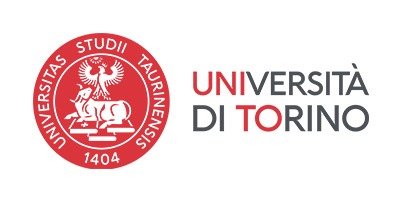UniTo at a glance The University of Turin is one of the most ancient and prestigious Italian Universities. Hosting almost 80.000 students (a.y. 2021-2022) and with 120 buildings in different areas in Turin and in key places in Piedmont, the University of Turin can be considered as “city-within-a-city”, promoting culture and producing research, innovation, training and employment. The University of Turin is today one of the largest Italian Universities, open to international research and training. It carries out scientific research and organizes courses in all disciplines, except for Engineering and Architecture. It is an integral part of the community, acting for reviving urban and suburban areas, promoting cultural interaction, social integration and development, encouraging dialogue and insight into current realities. Courses The University of Turin virtually covers every field of knowledge; its Medical Diagnostic, Biosensoristics and Nanotechnologies research centers are amongst the best ones in Italy. The University of Turin has a remarkable research tradition in traditional subjects such as history, philosophy, law, economics and medicine but it is currently branching out into important modern sectors, such as food science, social politics, IT, performing arts and communication sciences. The University makes an active stand on a number of social issues, such as environment, drugs, equal opportunities and rights of people with special needs. It also acts at an international level through partnership arrangements with India, China, developing countries in Asia, Latin America, Eastern Europe, the Mediterranean Area and with a number of international organizations operating in the region. UniTo is also partner of UNITA – Universitas Montium, an alliance of six comprehensive research universities from five countries: Universidade Beira Interior – UBI Portugal, Université de Pau et de Pays de l’Adour, Universidad de Zaragoza – UNIZAR Spain, Université Savoie Mont Blanc – USMB France and Universitatea de Vest din Timișoara West – UVT Romania. Food Chemistry Group: https://www.dstf.unito.it/do/gruppi.pl/Show?_id=m2lq Key-words: Food volatilomics, Food metabolomics, Nutrimetabolomics, Chemical profiling, Fingerprinting, Bioactive compounds in food, Food supplements, Aroma compounds, Process contaminants, Miniaturized sampling techniques, GC-MS, GC×GC-MS, Headspace analysis, Advanced analytical techniques, Total analysis systems, Artificial Intelligence smelling, Computer Vision, Green Analytical Chemistry Development of innovative and advanced instrumental configurations for comprehensive two-dimensional gas chromatography (GC×GC) coupled to Mass Spectrometric detection (MS) for food volatilomics and food metabolomics Sensomic characterization of food: key-odorants, off-odorants, odorant patterns Application of Artificial Intelligence concepts to food composition analytics (AI smelling, computer vision, decision making). WP1: Unito will contribute to WP1 by defining the required gas chromatographic performance and the set up for the at-line trials WP2: Unito will contribute to WP2 by defining the VOCs of interest for EVOQUE WP4: Unito will contribute to WP4 by testing the Gen 1 QEPAS ADM combined with a standard GC WP5: Unito will participate intensively in WP5 by testing possible analytical and preconcentration system configurations for conventional GC with regular injection and detection to validate the performance of standard GC systems for the Gen 1 GC-QEPAS system WP7: Unito will be heavily involved in WP7 by validating the performance of the Gen 1 GC-QEPAS system on real roasted coffee/hazelnut samples and matrix-matched mixtures to define the specifications of the Gen 2 system for trial testing WP10: Unito will contribute to WP10 by defining the requirements and designing a possible solution for the compact and miniaturized GC set up to be used in the final product WP12: The Unito partner will lead WP12, which will compare the system performance of Gen 1 and Gen 2 GC-QEPAS vs. the GC-MS benchmark. Unito will test the system performance on the known samples of roasted coffee and hazelnuts with the GC-MS benchmark. The performance of the Gen 1 and Gen 2 GC-QEPAS systems will be validated using various artificial intelligence algorithms on target VOCs and fingerprint analysis WP13: Unito will participate intensively in WP13 by coordinating the installation of Gen 2 GC-QEPAS in the hazelnut storage facility and coffee roasting plant and evaluating the at-line capability of VOCs fingerprinting by GC-QEPAS compared to benchmark techniques. Evoque
Uniersita Degli Studi Di Torino

Corporate presentation



Department of Drug Science and Technology at UniTO


The Food Chemistry Group at Unito focuses research on




Facilities
Role in the Project

List of Publications

This website uses cookies to improve your web experience.
